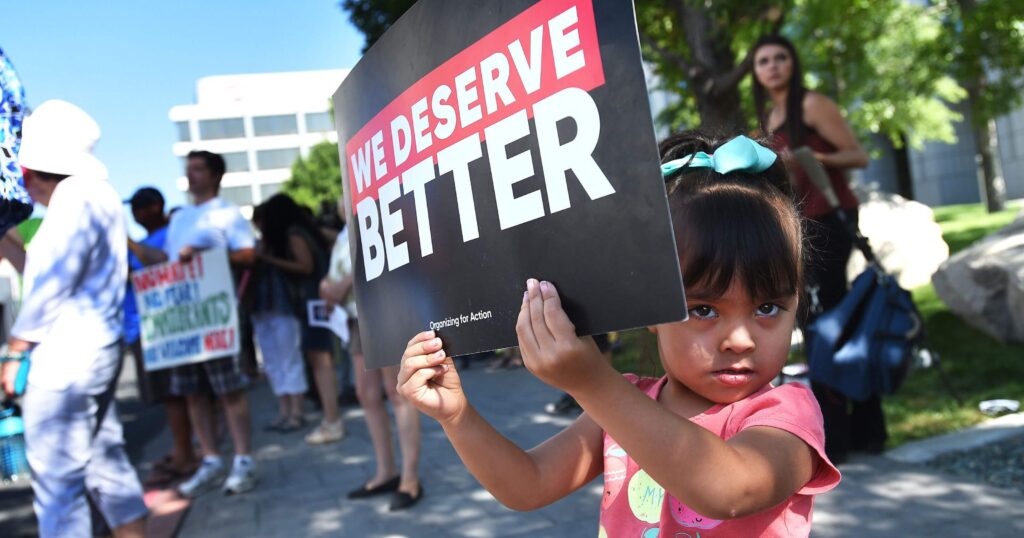by The Cowl Editor on September 14, 2017
Opinion

by Lela Biggus ’18
Opinion Staff
Anyone who has been on the Internet lately would know that the Trump administration cut the Deferred Action for Childhood Arrivals Policy, or DACA, on Tuesday, September 5. The policy, which began in 2012, has allowed over 800,000 undocumented young arrivals, who are now between the ages of 15 and 36, to legally remain in the United States under certain stipulations.
Trump gave Congress a timeframe of six months to legalize the policy that Obama issued by executive order. In the meantime, no new applicants will be protected from deportation by the policy’s terms and no new two-year work permits will be granted, though previously issued permits will be upheld until their expiration.
The White House released a statement defending Trump’s decision to rescind DACA. In it, the president states, “I have advised the Department of Homeland Security that DACA recipients are not enforcement priorities unless they are criminals, are involved in criminal activity, or are members of a gang.”
“Criminal” is a word used liberally and pointedly in immigration policy discourse. The president projects an air of compassion for young immigrants, suggesting that DACA recipients will not be in danger as a result of his decision.
This is either a display of alarming ignorance or a glaring failure to acknowledge that U.S. deportation policy and racialized policing tactics have always disproportionately targeted minority communities, regardless of whether or not an individual has committed a crime.
Even in “sanctuary cities”—where local police are prohibited from collaborating with Federal Immigration Customs Enforcement agents and may not automatically report an individual’s legal status—you may still be approached and unfairly apprehended for “looking suspicious.”
Once arrested, one may be subject to federal intervention, prolonged detention, and eventual deportation.
Hopefully the president’s repeated use of the term “illegal” when referring to undocumented immigrants was not lost on readers.
The term is a political tool that criminalizes and dehumanizes individuals that, like those DACA was implemented to protect, did not commit crimes of their own accord, or whose families could not achieve legal status through the elusive labyrinth of a naturalization process they currently offer those urgently seeking a path to citizenship.
It is important to remember that Obama was deemed by some,“Deporter in Chief,” as he deported 2.7 million undocumented immigrants, more than any president before him and more than the total number of deportees before 1997.
But President Trump is on an even more devastating path than his predecessor, deporting undocumented immigrants at an even higher rate than Obama did.
What is more, the number of people arrested by ICE agents with no previous criminal record outweighs those arrested with criminal charges on their record.
Here on campus, the Organization of Latin American Students (OLAS) commented on the end of the DACA program and what they plan to do as a club in the wake of the recent news. They said, “As members of the Organization of Latin American Students, we feel that we not only have a responsibility to advocate alongside individuals on issues that affect our community and to promote social justice, but simply it is just the right thing to do.
“Members of our families, organization, and community are both directly and indirectly affected by this devastating news and so it is important that we provide a voice and make sure that we are heard. We are a nation of immigrants, no matter where you are from, everyone is from somewhere and we seem to forget that.”
Trump is calling on Congress to finally “advance responsible immigration reform,” after “a decades long failure of Washington D.C. to enforce immigration law.”
This all sounds well and good, but the reality is that a comprehensive immigration reform has been the futile battle cry of politicians for years.
This issue is not a new one. It will not be fixed in the next six months.
If healthcare is any indication of the Trump administration’s ability to smoothly repeal and replace anything, we are bound to be disappointed. Hundreds of thousands of children and young people in the U.S. will continue to face growing fear and insecurity.